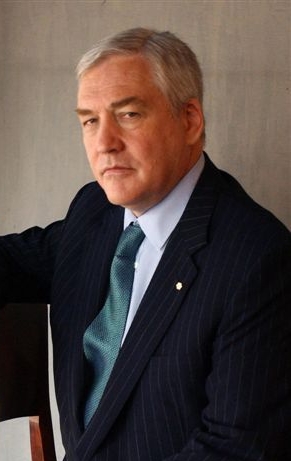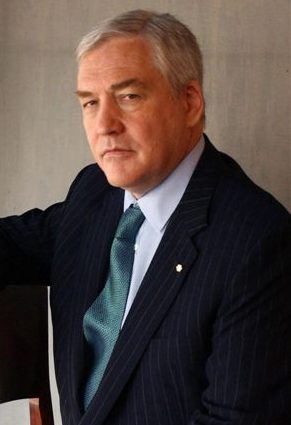 CFN – All of the usual responses quickly occurred after the Scottish referendum last week:
CFN – All of the usual responses quickly occurred after the Scottish referendum last week:
The defeated separatists, although their leader announced his retirement from politics, claimed that they represented the forces of history and that having got from a standing start to 45% on their first try, they would cross the finish line next time.
Equally on cue, the unionists, led by the UK prime minister, David Cameron, announced a vast but unspecific devolution of powers to the provinces — England, Wales and Northern Ireland, as well as Scotland, all at the expense of the Mother of Parliaments, which has ruled a unitary state since, at the latest, the shambles of the American Revolution. And other separatists in other countries claimed to draw strength from the Scottish test, and to be part of the inexorable march of history toward the fragmentation of implicitly oppressive federal bundlings of ethnic and national groups.
All these normal reactions are tosh. Separatist movements do not necessarily become stronger after their first referendary test. Publics age and become more conservative; bold ideas seem less temptingly adventurous after their initial try-on. The unionists or federalists tend to know better how to parry the separatist argument after its initial airing (though this was not the case in Canada in 1995, when the Quebec nationalists were angered by the failure of the Meech Lake and Charlottetown Accords).
The well-respected polling of Lord Ashcroft revealed a few days after the Scottish referendum that the biggest factor in the negative majority, almost half of those who voted no, was unease about the complexities and uncertainties of the whole idea, especially the currency, membership in the European Union, the economy, jobs, pensions and prices. These are all relatively clear subjects in the present constitutional framework, but new members of the EU have to take the Euro, which could prove much less satisfactory to the Scots than the pound, and anyone, including the UK, could veto a Scottish EU application. A new country, largely populated by Scots who have long since become addicts to benefits generated and paid by the English, may consider Scottish independence a grand project when waxing in after-dinner sagacity fuelled by a generous helping of the admirable local whiskey, but much of it is a shot in the dark, so why risk it?
The other main reasons for no votes were “a strong attachment to the UK and its shared history, culture and traditions;” and even fewer were those who would be satisfied with “extra powers for the Scottish Parliament together with the security of remaining part of the UK.”
The panicky post-referendum effort of the British prime minister, abetted by the leader of the opposition, Labour’s Ed Miliband, and the coalition partner, Liberal Democratic leader Nick Clegg, to make over British constitutional arrangements of centuries in favour of regional empowerments before next spring’s election will not pass the Parliament that it is proposed to emasculate, and will be deemed unacceptable by those Scots who have been trying for full independence.
Michael Ashcroft effectively exposed the fallacy of the Cameron-Miliband-Clegg reaction even as it was being revealed by the ill-assured prime minister. Devolving powers is the less frightening and more gradualist route to independence, and has been the specialty of the Quebec separatists. They wrote two consecutive trick questions designed to formulate the joys of independence while retaining the tangible comforts and security of continuing to snuggle in Canada and receiving $2,000 per capita annually from English Canada, a fact that Pierre Trudeau, Brian Mulroney, and Jean Chretien never wished to reveal, presumably from fear of an English-Canadian backlash.
Thus do post-vote incongruities precipitate themselves: Cameron, the winner, panics in synchronization with the other unionist party leaders and offers to abandon much of what has just been vindicated. The Scottish separatist leader, Alex Salmond, claims to be on an inexorable march to the victory of his cause, but resigns anyway, in the higher interests of “a dream that will never die.” Perhaps not, but it won’t win either. And the hopeful groupies from other separatist movements, such as in Quebec and Catalonia, claim some impending victory for themselves in the defeat in Scotland of the option they favour for themselves.
In countries where European statesmen in their distant chancelleries drew lines on maps that bore no relation to ethnic, cultural, or economic facts on the ground, as in the Middle East and much of Africa, separation is not hard to sell to aggrieved groups such as Iraqi Kurds, Shiities and Sunnis, Syrian Alawites, Palestinians, or in Africa, where there has been or is terrible civil (usually tribal) strife in Rwanda, Sudan, Libya, Mauritania, Mali, Niger, Congo, Liberia, Ivory Coast, Central African Republic, Mozambique, Angola, Zimbabwe and South Africa. Nor is it necessarily complicated to sell detachment to components of states or federations recently and rather arbitrarily assembled, such as the former Czechoslovakia, the former Yugoslavia or Malaysia (Singapore).
Only Salmond’s wild exaggeration of North Sea oil reserves and of the share of them that would belong rightfully to Scotland, which only has about 8% of the UK’s population, made a serious contest possible. Here in Canada, freakish historical circumstances, a second trick question, and Jean Chrétien’s mismanagement gave the separatists a second try in 1995, just as Cameron’s mismanagement and over-confidence made it somewhat close in Scotland. But the UK and Canada are liberal democracies with generous fiscal and social-services equalization schemes, and are not now the sort of country that regions secede from.
The rag-tag of Quebec separatists in Scotland last week claiming that their prospects had been reinvigorated by events there were just suffering out-of-body hallucinations.
Dead pigeons don’t fly.
cbletters@gmail.com
Conrad Black is the founder of the National Post. His columns regularly appear in the National Post on Saturdays. For more opinion from Conrad Black, tune into The Zoomer on VisionTV (a property of ZoomerMedia Ltd.), Visiontv.ca. Mr. Black graciously allowed us to reprint this article on CFN.
